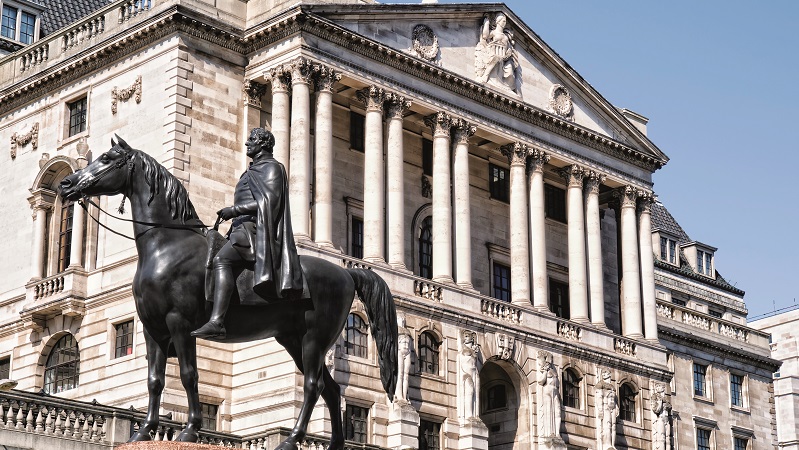UK inflation hitting a 10-year high means the “way is paved for a rate lift off” to start soon but some commentators think the Bank of England might need yet more persuading before pulling the trigger as early as next month.
On Wednesday, the Office for National Statistics reported that inflation jumped to 4.2% in October, up from 3.1% the previous month. The move is CPI’s highest rise since November 2011 and the rate is now more than double the Bank of England’s 2% target.
The ONS said rising fuel and energy prices, paired with global supply chain disruptions, were the main drivers for the spike.
It follows figures published on Tuesday which revealed the UK’s unemployment rate fell to 4.3% in the three months to September from 4.5%, the lowest level since October 2020.
Commentators said the increase in inflation, as well as the improvement in labour statistics, should put pressure on the bank’s monetary policy committee (MPC) to raise rates at the next meeting, but the country’s slowing GDP growth could hamper that path.
Next labour market release will be ‘crucial’
Barings Investment Institute economist Matteo Cominetta said: “A sizeable downside surprise was probably needed to make the MPC defer the start of a hiking cycle much further. With the opposite happening, in a context of solid wage growth and faster recovering employment suggesting that the transition from furlough back to employment is proceeding smoothly, the way is paved for a rate lift off to start soon.
“Until yesterday markets were pricing a hike in January still more likely than in December. This is likely to change: hawkish comments from governor Bailey also point in this direction.
“The next labour market release will be crucial to make MPC members’ mind up between hiking immediately or waiting until January.”
Quintet Private Bank chief economist and macro strategist Daniele Antonucci said inflation rises over the coming months is likely to result in an inflation overshoot relative to the bank’s forecast. “Together with solid labour market data, this strengthens the case for a first rate hike at the December policy meeting,” he added.
Slowing economic activity plays a part
But Antonucci also noted that inflation created by supply bottlenecks slows economic activity and so aggressive hikes would only make things worse, especially as policymakers expect these bottlenecks to ease. Last week, the ONS reported UK quarterly GDP growth slowed to 1.3% in Q3.
“So, while we think the economic environment does require a lift-off from near-zero rates, we lean on the dovish side and only see the bank rate reaching 0.75% by the end of 2022.”
See also: Chancellor writes to BoE governor as inflation on course to hit 4%
Similarly, You Asset Management chief executive Derrick Dunne said the latest figures will no doubt spur speculation around a December hike, but this is looking less likely in light of the slowing GDP growth reported by the ONS last week.
“Just a few days ago in fact, the bank’s own chief economist publicly acknowledged that acting too soon could ‘derail some of the recovery which in some respects is still quite fragile’.”
Tilney Smith & Williamson chief investment strategist Daniel Casali said the BoE’s failure to increase rates at its last meeting compounded rising inflation.
“The BoE will be aware that when it failed to raise interest rates at its 4 November meeting it weakened sterling and created another source of inflation through higher import prices,” he said. “The BoE may be reluctant to make the same mistake again when the Monetary Policy Committee meets next on 16 December.”









